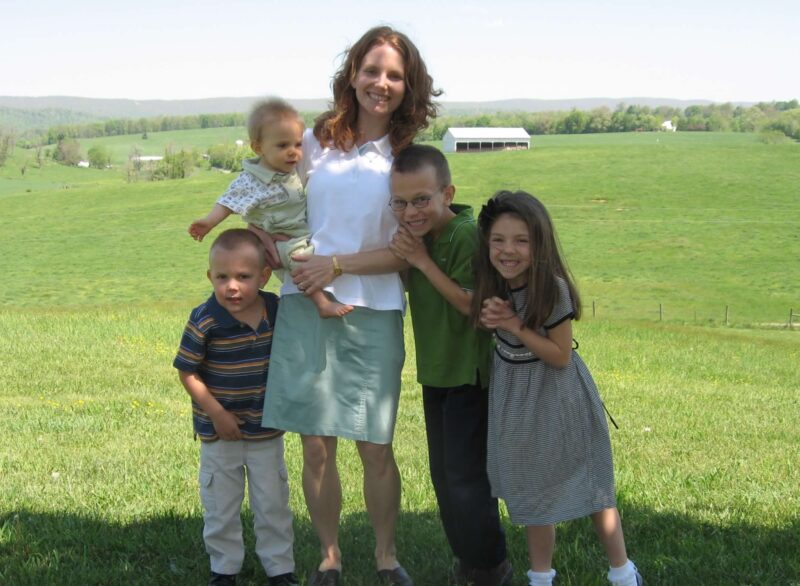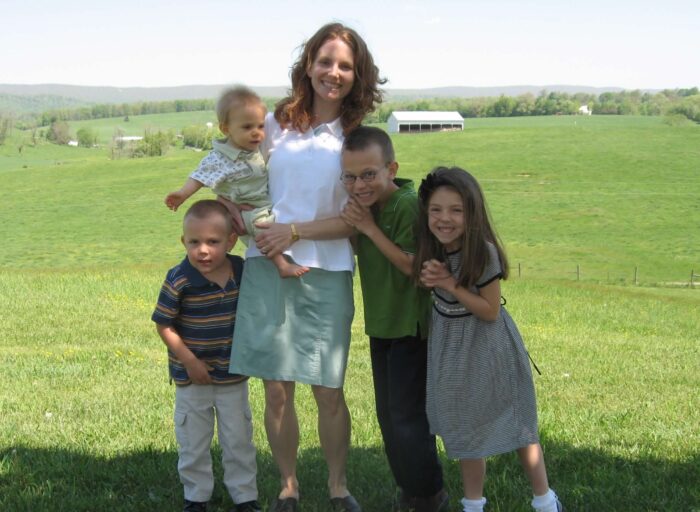Seventeen years ago today, also a Labor Day, I gave birth to my fourth and last child. The irony that I “labored on Labor Day” was not lost on anyone, especially not me. On this Labor Day, as I rapidly approach a new season of life when mothering will not occupy the majority of my days, I’ve thought a lot about the labor of parenting, specifically motherhood, and what our society says about its value.
Yesterday in church, my pastor encouraged us to take pride in our work, to dedicate our labor to the glory of God. I’m embarrassed to say that for many years, my labor as a mother did nothing to bring God glory.
I started my years of mothering working part time as a pediatric physical therapist. That included dropping babies at day care, pumping breast milk in uncomfortable places (like the car of the PTA, a male, who I worked with), and feeling like I didn’t do either job, PT or mom, well. After child number two had several ear infections and horrible reactions to antibiotics, I decided to stay home full time. My daughter’s ear infections went away, and I went on to have two more children. With no family nearby, and a husband working a job that demanded much of his time and energy, I understood that staying home was the best thing for my growing family. I also truly believed it was God’s plan for me. However, I didn’t always embrace this plan for my labor with grace.
For the first 17 years of laboring as a mother, I wrestled with an exhausting variety of emotions. Insecurity- that I had no “street value”, that if something happened to my husband, I could not financially provide for our family. Insignificance – that as a woman without a career title or initials behind her name, I didn’t have value in our society. Resentment – that I had earned two master’s degrees and was using them to meal prep, chauffeur, and wash clothing. I loved my children dearly, but was often exhausted, frustrated, and angry.
This was exemplified best when, upon giving my 14-year-old some suggestions for managing a sports injury, he said, “You’re not a PT mom. You don’t work.” He was just being a sullen 14-year-old who didn’t appreciate unsolicited parental advice. I received it as an attack on my self-worth and promptly burst into tears.
In dark moments, I even went so far as to judge women who worked full time. How did they expect to discipline their children, feed them nutritious meals, and keep the house clean and organized while still working 40 hours a week?
Thank goodness, about six years ago, I realized a few critical things about the labor of mothering. First, it was the best thing for me, considering my personality, mental health, resources, and goals for my children. Second, it was a privilege to mother full time, one that many parents do not have, because my husband made enough money to support our family. Third, the labor of parenting, looks different for every family, based on their needs and circumstances. These days I accept more and more that there is NO one “right” way to do things. We are all just doing the best we can where we are. I have been immensely happy since this realization. And I see in my relationships with my children, and theirs with each other, the valuable fruit of my years of labor.
I wish my personal epiphany about labor would be reflected in how our entire society thinks about Labor. Since the pandemic, traditions and attitudes about work have been challenged, and that’s a good thing. The great reshuffling and the dramatic changes to the labor market and how it functions are prompting useful discussions. President Grover Cleveland established Labor Day as a national holiday in 1894. It came as a reaction to the Industrial Revolution and the poor working conditions many American laborers found themselves in.
Over 100 years after the first official Labor Day, we need to use this post pandemic Labor Day to reflect and revise how we think about labor. Is the 40-hour work week necessary? Must workers be in the office every day all day? How can we be more flexible with scheduling and expectations to accommodate and support parents? How can we place more value on service careers like health care, education, and safety? How can we appropriately acknowledge and reward labor? Teachers, nurses, police, and firemen perform some of the most critical services to keep our society on its feet, and yet we often reward their labor with little respect, increasing responsibility, and poor pay.
This Labor Day, we need to do more than grill burgers and enjoy the last day at the pool. We need to think about how to take proactive steps to reinvent how we think about labor so that all Americans can be happier, more fulfilled, and more appreciated for the work they do.
And for all the mamas out there, don’t succumb to guilt, insecurity, or resentment like I did. Do your best, and that will look different for each of you.
Thanks for getting thoughtful with me.




